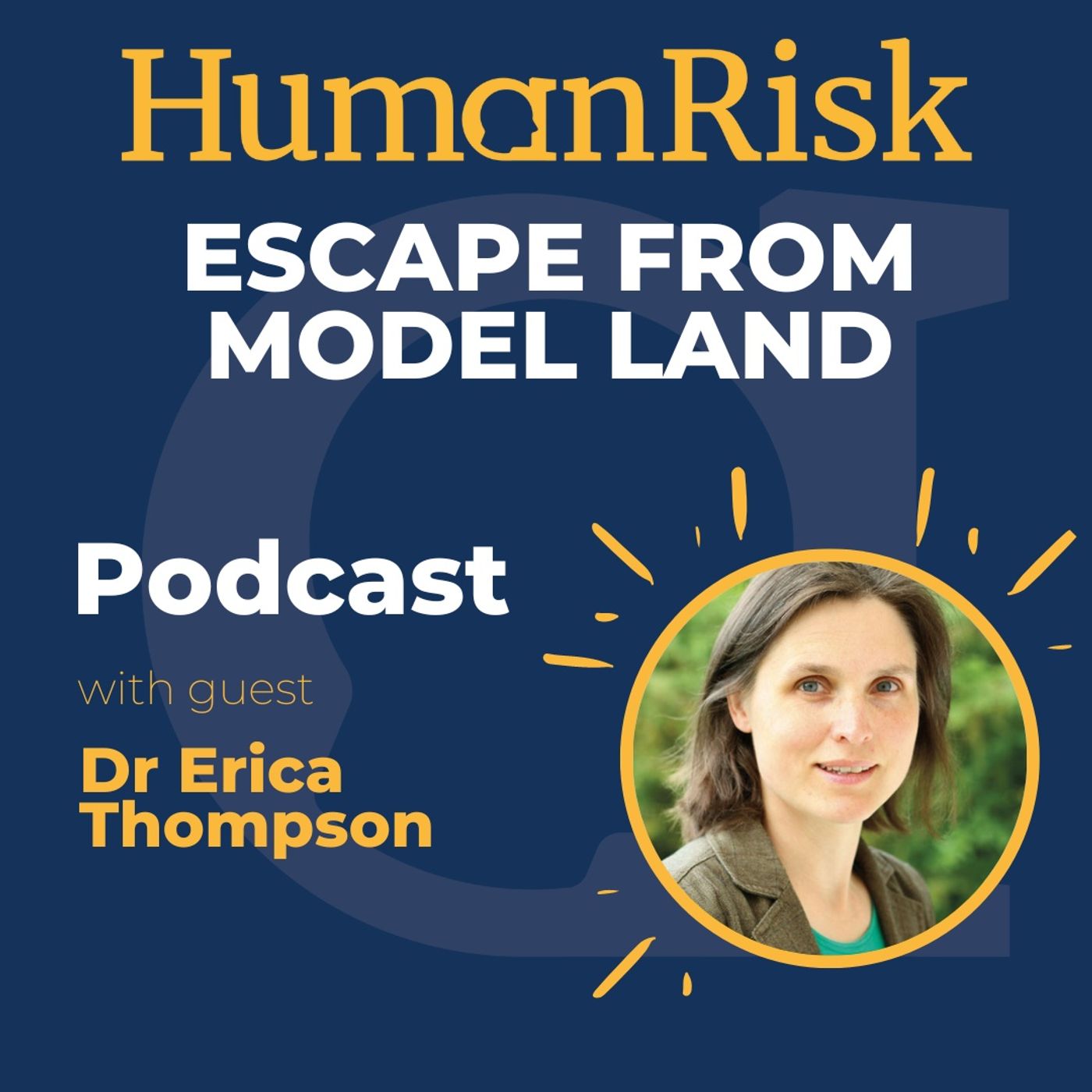Sept. 7, 2023
Dr Erica Thompson on Escape from Modelland

Why are we so reliant on models, how can they lead us astray, and what can we do about it?
On this episode, I’m exploring models. Of the mathematical kind, not the fashion or toy kind. Models interest me because so much of our world is run by them....
Why are we so reliant on models, how can they lead us astray, and what can we do about it?
On this episode, I’m exploring models. Of the mathematical kind, not the fashion or toy kind. Models interest me because so much of our world is run by them. Many of the things we take for granted in the 21st century have models either running or helping to run them.
When they work well, they enable things to happen that wouldn’t otherwise. But when they go wrong – as we’ve seen in the banking industry — there are serious consequences. The Human Risk angle on models is that models are designed, commissioned and used by people. As we know from people who blindly follow their GPS unit and drive into a river, we can often assume the models must be right. But what’s right in theory might not be in practice. The real world is often complex, and models don’t always capture nuances.
My guest is Dr. Erica Thompson. She’s the author of a fascinating book called ‘Escape from Model land: How mathematical models can lead us astray and what we can do about it’.
Erica is an Associate Professor of Modelling for Decision Making at University College Londons ’s Department of Science, Technology, Engineering and Public Policy. She’s also a Fellow of the London Mathematical Laboratory, where she leads the research programme on Inference from Models, and a Visiting Senior Fellow at the LSE Data Science Institute. So, she’s very highly qualified to help us explore what models are, why they can go wrong and what we can do about it.
On the show, we talk about:
To learn more about Erica, visit her personal website: https://www.ericathompson.co.uk/
For more on her book 'Escape from Model Land', visit https://www.ericathompson.co.uk/books/
To see episodes of the show you might have missed, visit www.humanriskpodcast.com
On this episode, I’m exploring models. Of the mathematical kind, not the fashion or toy kind. Models interest me because so much of our world is run by them. Many of the things we take for granted in the 21st century have models either running or helping to run them.
When they work well, they enable things to happen that wouldn’t otherwise. But when they go wrong – as we’ve seen in the banking industry — there are serious consequences. The Human Risk angle on models is that models are designed, commissioned and used by people. As we know from people who blindly follow their GPS unit and drive into a river, we can often assume the models must be right. But what’s right in theory might not be in practice. The real world is often complex, and models don’t always capture nuances.
My guest is Dr. Erica Thompson. She’s the author of a fascinating book called ‘Escape from Model land: How mathematical models can lead us astray and what we can do about it’.
Erica is an Associate Professor of Modelling for Decision Making at University College Londons ’s Department of Science, Technology, Engineering and Public Policy. She’s also a Fellow of the London Mathematical Laboratory, where she leads the research programme on Inference from Models, and a Visiting Senior Fellow at the LSE Data Science Institute. So, she’s very highly qualified to help us explore what models are, why they can go wrong and what we can do about it.
On the show, we talk about:
- the use of models in decision-making across various contexts such as climate, insurance, finance, and economic risk assessment';
- the limitations and complexities of models, particularly when predicting the physical impacts of climate change over the 21st century;
- the importance of understanding and acknowledging the uncertainties and potential risks in manipulating models;
- the significance of diversity in models and the concept of maximizing model diversity for robust and accurate inference;
- the challenges of shifting to new models that can effectively represent different values and judgments and the difficulty in changing the system when vested interests and incentives are not aligned;
- the importance of trust and the need for experts to be deeply embedded within society and responsive to its values; and
- the role of science in shaping our optimism and understanding of challenges and the need for a more nuanced viewpoint about science and society.
To learn more about Erica, visit her personal website: https://www.ericathompson.co.uk/
For more on her book 'Escape from Model Land', visit https://www.ericathompson.co.uk/books/
To see episodes of the show you might have missed, visit www.humanriskpodcast.com



















